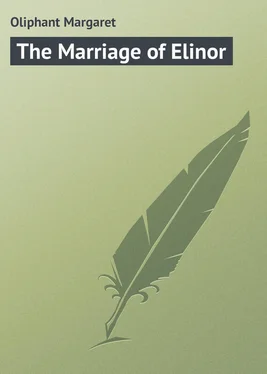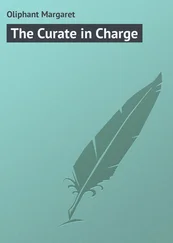Margaret Oliphant - The Marriage of Elinor
Здесь есть возможность читать онлайн «Margaret Oliphant - The Marriage of Elinor» — ознакомительный отрывок электронной книги совершенно бесплатно, а после прочтения отрывка купить полную версию. В некоторых случаях можно слушать аудио, скачать через торрент в формате fb2 и присутствует краткое содержание. Жанр: foreign_prose, на английском языке. Описание произведения, (предисловие) а так же отзывы посетителей доступны на портале библиотеки ЛибКат.
- Название:The Marriage of Elinor
- Автор:
- Жанр:
- Год:неизвестен
- ISBN:нет данных
- Рейтинг книги:3 / 5. Голосов: 1
-
Избранное:Добавить в избранное
- Отзывы:
-
Ваша оценка:
- 60
- 1
- 2
- 3
- 4
- 5
The Marriage of Elinor: краткое содержание, описание и аннотация
Предлагаем к чтению аннотацию, описание, краткое содержание или предисловие (зависит от того, что написал сам автор книги «The Marriage of Elinor»). Если вы не нашли необходимую информацию о книге — напишите в комментариях, мы постараемся отыскать её.
The Marriage of Elinor — читать онлайн ознакомительный отрывок
Ниже представлен текст книги, разбитый по страницам. Система сохранения места последней прочитанной страницы, позволяет с удобством читать онлайн бесплатно книгу «The Marriage of Elinor», без необходимости каждый раз заново искать на чём Вы остановились. Поставьте закладку, и сможете в любой момент перейти на страницу, на которой закончили чтение.
Интервал:
Закладка:
Margaret Oliphant
The Marriage of Elinor
CHAPTER I
John Tatham, barrister-at-law, received one summer morning as he sat at breakfast the following letter. It was written in what was once known distinctively as a lady's hand, in pointed characters, very fine and delicate, and was to this effect: —
"Dear John, Have you heard from Elinor of her new prospects and intentions? I suppose she must have written to you on the subject. Do you know anything of the man?.. You know how hard it is to convince her against her will of anything, and also how poorly gifted I am with the power of convincing any one. And I don't know him, therefore can speak with no authority. If you can do anything to clear things up, come and do so. I am very anxious and more than doubtful; but her heart seems set upon it.
"Your affect. "M. S. D."Mr. Tatham was a well-built and vigorous man of five-and-thirty, with health, good behaviour, and well-being in every line of his cheerful countenance and every close curl of his brown hair. His hair was very curly, and helped to give him the cheerful look which was one of his chief characteristics. Nevertheless, when these innocent seeming words, "Do you know the man?" which was more certainly demonstrative of certain facts than had those facts been stated in the fullest detail, met his eye, Mr. Tatham paused and laid down the letter with a start. His ruddy colour paled for the moment, and he felt something which was like the push or poke of a blunt but heavy weapon somewhere in the regions of the heart. For the moment he felt that he could not read any more. "Do you know the man?" He did not even ask what man in the momentary sickness of his heart. Then he said to himself, almost angrily, "Well!" and took up the letter again and read to the end.
Well! of course it was a thing that he knew might happen any day, and which he had expected to happen for the last four or five years. It was nothing to him one way or another. Nothing could be more absurd than that a hearty and strong young man in the full tide of his life and with a good breakfast before him should receive a shock from that innocent little letter as if he had been a sentimental woman. But the fact is that he pushed his plate away with an exclamation of disgust and a feeling that everything was bad and uneatable. He drank his tea, though that also became suddenly bad too, full of tannin, like tea that has stood too long, a thing about which John was very particular. He had been half an hour later than usual this morning consequent on having been an hour or two later than usual last night. These things have their reward, and that very speedily; but as for the letter, what could that have to do with the bad toasting of the bacon and the tannin in the tea? "Do you know the man?" There was a sort of covert insult, too, in the phraseology, as if no explanation was needed, as if he must know by instinct what she meant – he who knew nothing about it, who did not know there was a man at all!
After a while he began to smile rather cynically to himself. He had got up from the breakfast table, where everything was so bad, and had gone to look out of one of the windows of his pleasant sitting-room. It was in one of the wider ways of the Temple, and looked out upon various houses with a pleasant misty light upon the redness of their old brickwork, and a stretch of green grass and trees, which were scanty in foliage, yet suited very well with the bright morning sun, which was not particularly warm, but looked as if it were a good deal for effect and not so very much for use. That thought floated across his mind with others, and was of the same cynical complexion. It was very well for the sun to shine, making the glistening poplars and plane-trees glow, and warming all the mellow redness of the old houses, but what did he mean by it? No warmth to speak of, only a fictitious gleam – a thing got up for effect. And so was the affectionateness of woman – meaning nothing, only an effect of warmth and geniality, nothing beyond that. As a matter of fact, he reminded himself after a while that he had never wanted anything beyond, neither asked for it, nor wished it. He had no desire to change the conditions of his life: women never rested till they had done so, manufacturing a new event, whatever it might be, pleased even when they were not pleased, to have a novelty to announce. That, no doubt, was the state of mind in which the lady who called herself his aunt was: pleased to have something to tell him, to fire off her big guns in his face, even though she was not at all pleased with the event itself. But John Tatham, on the other hand, had desired nothing to happen; things were very well as they were. He liked to have a place where he could run down from Saturday to Monday whenever he pleased, and where his visit was always a cheerful event for the womankind. He had liked to take them all the news, to carry the picture-papers, quite a load; to take down a new book for Elinor; to taste doubtfully his aunt's wine, and tell her she had better let him choose it for her. It was a very pleasant state of affairs: he wanted no change; not, certainly, above everything, the intrusion of a stranger whose very existence had been unknown to him until he was thus asked cynically, almost brutally, "Do you know the man?"
The hour came when John had to assume the costume of that order of workers whom a persistent popular joke nicknames the "Devil's Own: " – that is, he had to put on gown and wig and go off to the courts, where he was envied of all the briefless as a man who for his age had a great deal to do. He "devilled" for Mr. Asstewt, the great Chancery man, which was the most excellent beginning: and he was getting into a little practice of his own which was not to be sneezed at. But he did not find himself in a satisfactory frame of mind to-day. He found himself asking the judge, "Do you know anything of the man?" when it was his special business so to bewilder that potentate with elaborate arguments that he should not have time to consider whether he had ever heard of the particular man before him. Thus it was evident that Mr. Tatham was completely hors de son assiette , as the French say; upset and "out of it," according to the equally vivid imagination of the English manufacturer of slang. John Tatham was a very capable young lawyer on ordinary occasions, and it was all the more remarkable that he should have been so confused in his mind to-day.
When he went back to his chambers in the evening, which was not until it was time to dress for dinner, he saw a bulky letter lying on his table, but avoided it as if it had been an overdue bill. He was engaged to dine out, and had not much time: yet all the way, as he drove along the streets, just as sunset was over and a subduing shade came over the light, and that half-holiday look that comes with evening – he kept thinking of the fat letter upon his table. Do you know anything of the man? That would no longer be the refrain of his correspondent, but some absurd strain of devotion and admiration of the man whom John knew nothing of, not even his name. He wondered as he went along in his hansom, and even between the courses at dinner, while he listened with a smile, but without hearing a word, to what the lady next him was saying – what she would tell him about this man? That he was everything that was delightful, no doubt; handsome, of course; probably clever; and that she was fond of him, confound the fellow! Elinor! to think that she should come to that – a girl like her – to tell him, as if she was saying that she had caught a cold or received a present, that she was in love with a man! Good heavens! when one had thought her so much above anything of that kind – a woman, above all women that ever were.
"Not so much as that," John said to himself as he walked home.
Читать дальшеИнтервал:
Закладка:
Похожие книги на «The Marriage of Elinor»
Представляем Вашему вниманию похожие книги на «The Marriage of Elinor» списком для выбора. Мы отобрали схожую по названию и смыслу литературу в надежде предоставить читателям больше вариантов отыскать новые, интересные, ещё непрочитанные произведения.
Обсуждение, отзывы о книге «The Marriage of Elinor» и просто собственные мнения читателей. Оставьте ваши комментарии, напишите, что Вы думаете о произведении, его смысле или главных героях. Укажите что конкретно понравилось, а что нет, и почему Вы так считаете.












